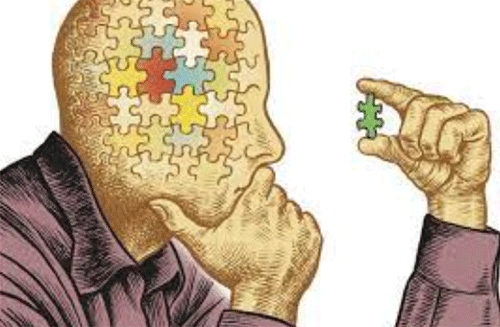Here are five common and influential critical thinking skills you might consider highlighting on your resume or in an interview:

1. Observation
Observation skills are the starting point for critical thinking. Those who are observant are quick to understand and identify a new problem. Those who are good at observation are also able to understand why something might be a problem. They may even be able to predict when a problem is likely to occur before it happens based on their experience.
Improve your observation skills by slowing down your speed of information processing and training yourself to pay closer attention to your surroundings. You can practice mindfulness techniques, journaling, or active listening during and outside of work to examine more thoroughly what you hear or see. Then, consider whether you’ve noticed trends in behavior, transactions, or data that might be helpful for your team to address.
2. Analysis
Once a problem is identified, analytical skills become essential. The ability to analyze and evaluate a situation effectively involves knowing what information, facts, or data are important about the problem. This often involves collecting unbiased research, asking relevant questions to ensure the accuracy of the data, and objectively evaluating the results.
Improve your analytical skills by taking on new experiences. For example, you might read a book about a concept you’re unfamiliar with or take an online math class to challenge yourself to think in new ways and consider new ideas. Doing so can help you develop the skills to interpret new information and make rational decisions based on sound analysis.
3. Assumptions
Inference is the ability to draw conclusions about the information you collect, and you may have technical or industry-specific knowledge or experience. When you make a guess, it means you are making an answer based on limited information. For example, a car mechanic might have to guess what causes a car’s engine to stall at seemingly random times based on the information available to them.
Improve your guessing skills by focusing on making educated guesses instead of drawing quick conclusions. It requires slowing down to carefully look for and consider as many clues as possible – such as pictures, data or reports – that might help you assess the situation.
4. Communication
Communication skills are important when it comes to explaining and discussing problems and their possible solutions with colleagues and other stakeholders.
Improve your communication skills in critical thinking contexts by engaging in difficult discussions, for example, in situations where you and another participant may disagree on a topic. Maintain good communication habits, such as active listening and respect, understanding other points of view, and being able to explain your ideas in a calm, logical manner. Doing so can help you evaluate solutions more effectively with your colleagues.
5. Problem solving
After you’ve identified and analyzed a problem and chosen a solution, the final step is to implement your solution. Solving problems often requires critical thinking to implement the best solution and to understand whether the solution is working as intended.
Improve your problem solving skills by setting goals to gain more industry knowledge within your field. Solving workplace problems is usually easier if you have a solid grasp of industry-specific information. Observing how others around you solve problems at work can also be helpful. Note their techniques and ask questions about their process.

 Follow
Follow